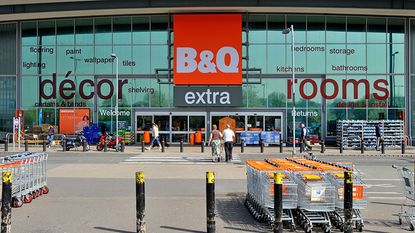Britain’s ten most-hated shares – w/e 12 August
Rupert Hargreaves looks at Britain's ten most-hated shares, and what short-sellers are looking at now.


These are the UK’s ten most unpopular firms, based on the percentage of the company’s stock being shorted (also known as “short interest”).
What is short selling?
Short-sellers target struggling companies and sell their stocks short with the aim of profiting from falling prices. Short sellers borrow the shares, sell them, then hope to buy them at a lower price in the future and pocket the profit. But whether a profit is made or not, the short seller is still obliged to return the borrowed shares to the broker at some point in the future.
As a result, short selling is far riskier than “going long”, as it relies on successfully timing the market, and carries the theoretical risk of unlimited losses (a share price can’t fall below zero, but there is no ceiling on how high it can rise).
Subscribe to MoneyWeek
Subscribe to MoneyWeek today and get your first six magazine issues absolutely FREE

Sign up to Money Morning
Don't miss the latest investment and personal finances news, market analysis, plus money-saving tips with our free twice-daily newsletter
Don't miss the latest investment and personal finances news, market analysis, plus money-saving tips with our free twice-daily newsletter
The list is worth paying attention to as it highlights which company share prices are expected to fall (which can be a red flag for potential “long” investors), and which may rise on unexpected positive news due to short-sellers being forced out of their positions in what’s known as a “short squeeze”.
Source: FCA's daily short positions report (Data as of 15 August 2022)
The top ten holdings are based on data sourced from the Financial Conduct Authority’s daily short positions report as of 15 August.
As equities have rallied over the past couple of weeks, hedge funds have pared back their bets against individual companies. For example, bets against Kingfisher, currently the most-hated stock in the UK, have declined from 9.1% of the firm’s outstanding shares to 7.7% as of 15 August. Meanwhile, bets against Curry’s have slumped from a 10-year high of 6.4% back to 4.9%.
Shopping centre owner Hammerson has been one of the most interesting single stock stories of the year. Towards the end of September 2020 the percentage of the company’s shares out on loan to short sellers hit 26.5% as the group struggled to refinance its debts in the middle of the coronavirus pandemic. Management stabilised the ship and bets against the company have dropped to less than 5% of shares outstanding.
Short-sellers have retreated as the firm’s fundamental performance has dramatically improved over the past 12 months. In the first half of 2022, Hammerson reported a 154% surge in interim earnings to £51 million. Stronger like-for-like gross and net rental income (up 16% and 48% respectively) as well as a 25% drop in net finance costs, helped the company’s bottom line.
Hammerson’s fundamental performance has recovered as customers have returned to its shopping centres. At the end of the second quarter centre footfall was 90% of 2019 levels and rent collection had returned to 94%. Retailers are also signing up for new space with £10.5m of leasing deals concluded in the period, with headline rates up 31%.
With the business back on firmer footing, management can concentrate on unlocking value from the property portfolio. The value of the portfolio grew 2.1% during the first half while Hammerson also completed £194 million of disposals to firm up the state of its balance sheet. It’s reinvesting some of this capital back into the portfolio’s development pipeline. It reduced net debt by 6% during the period.
• SEE ALSO:
Director dealings: what company insiders are buying and selling
The ten highest dividend yields in the FTSE 100
Rupert is the Deputy Digital Editor of MoneyWeek. He has been an active investor since leaving school and has always been fascinated by the world of business and investing.
His style has been heavily influenced by US investors Warren Buffett and Philip Carret. He is always looking for high-quality growth opportunities trading at a reasonable price, preferring cash generative businesses with strong balance sheets over blue-sky growth stocks.
Rupert was a freelance financial journalist for 10 years before moving to MoneyWeek, writing for several UK and international publications aimed at a range of readers, from the first timer to experienced high net wealth individuals and fund managers. During this time he had developed a deep understanding of the financial markets and the factors that influence them.
He has written for the Motley Fool, Gurufocus and ValueWalk among others. Rupert has also founded and managed several businesses, including New York-based hedge fund newsletter, Hidden Value Stocks, written over 20 ebooks and appeared as an expert commentator on the BBC World Service.
He has achieved the CFA UK Certificate in Investment Management, Chartered Institute for Securities & Investment Investment Advice Diploma and Chartered Institute for Securities & Investment Private Client Investment Advice & Management (PCIAM) qualification.
-
-
 Investment trust discounts hit 2008 levels. Here’s how to profit
Investment trust discounts hit 2008 levels. Here’s how to profitInvestment trust discounts have risen to levels not seen since 2008, here are three trusts looking to buy to profit.
By Rupert Hargreaves Published
-
 A luxury stock to buy at a high street price
A luxury stock to buy at a high street priceInvestors wrongly consider Watches of Switzerland a high-street outlet.
By Dr Matthew Partridge Published
-
 Investing in wine: how Cru Wine is reaching new audiences
Investing in wine: how Cru Wine is reaching new audiencesTips Gregory Swartberg, founder of fine wine specialist Cru Wine, talks to Chris Carter about how to start a wine collection
By Chris Carter Published
-
 Small companies with big potential
Small companies with big potentialMichael Taylor of Shifting Shares reviews his 2023 picks and highlights more promising minnows.
By Michael Taylor Published
-
 The MoneyWeek portfolio of investment trusts – July 2023 update
The MoneyWeek portfolio of investment trusts – July 2023 updateTips A decade ago we set up the MoneyWeek portfolio of investment trusts. They remain a compelling long-term bet says Rupert Hargreaves
By Rupert Hargreaves Published
-
 Women lead the way with ethical investments
Women lead the way with ethical investmentsDemand for more ethical investments has soared – and women are more likely to opt for them. Annabelle Williams, personal finance specialist at Nutmeg, takes a look at why.
By Annabelle Williams Published
-
 BoE: Mortgage payments to rise by £220 a month for households
BoE: Mortgage payments to rise by £220 a month for householdsMillions of households can expect a mortgage spike of around £200 a month - and some may even reach a extra £1,000 a month, the Bank of England warns
By Marc Shoffman Published
-
 What happened to Thames Water?
What happened to Thames Water?Thames Water, the UK’s biggest water company could go under due to mismanagement and debt. We look into how the company got itself into this position, and what investors should expect.
By Simon Wilson Last updated
-
 Where to invest in the metals that will engineer the energy transition
Where to invest in the metals that will engineer the energy transitionA professional investor tells us where he’d put his money. This week: John Ciampaglia, manager of the Sprott Energy Transition Materials UCITS ETF.
By Nicole García Mérida Published
-
 How investors can profit from high food prices
How investors can profit from high food pricesThe latest furore over grocery prices will die down, says David Stevenson. But the long-term outlook for soft commodities remains bullish. These are the stocks investors can buy to profit from high food prices.
By David J Stevenson Published









